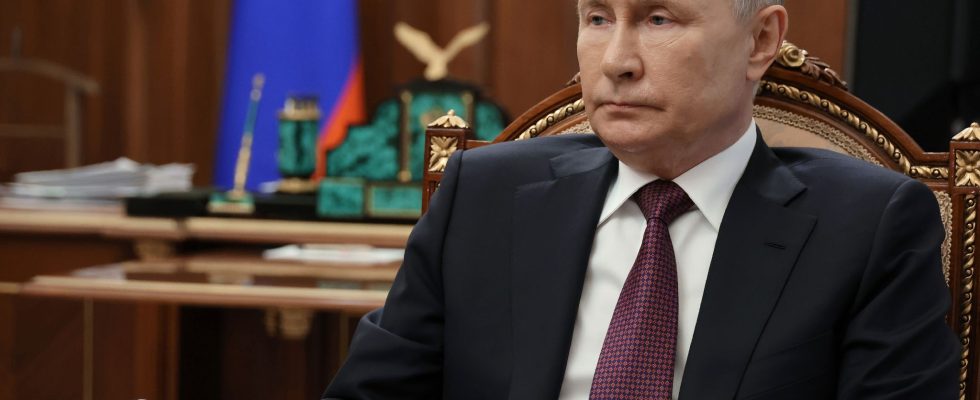The Kremlin did not wait 48 hours to reframe the thousands of paramilitaries orphaned by Wagner boss Evgueni Prigojine, presumed dead in the spectacular crash of his plane. Vladimir Putin signed a decree on Friday August 25 obliging members of paramilitary formations to take an oath to Russia, as do soldiers of the regular army.
Under this decree published on the government’s website, they must in particular swear “fidelity” and “loyalty” to Russia and “strictly follow the orders of commanders and superiors”. They also undertake to “sacredly respect the Russian Constitution”, “conscientiously carry out the tasks entrusted (to them)” and “courageously defend the independence and constitutional order” of the country.
This decree concerns persons enlisted as a voluntary combatant, those “contributing to the execution of the tasks assigned to the Russian armed forces” and other “military bodies and formations”, including the territorial defense forces formed during the conflict. in Ukraine.
The text was signed two months after the mutiny of the Wagner group, which, under the orders of its boss Yevgueni Prigojine, was angry with the Russian military hierarchy, accused of incompetence.
A useful model for Moscow
If mercenarism is prohibited by law in Russia, the activities of “private military companies” officially offering services related to “security”, of which Wagner is the most important and best known, are tolerated. The announced death of Prigojine today leaves the field open to the Russian president to rethink the structure of this parallel empire, which probably paid for believing itself too strong. And to redefine the Russian private military company (PMC) sector.
By losing its three most influential leaders on Wednesday, the Russian group Wagner sees its brand considerably weakened. There remains, however, a model of an agile paramilitary society, indirectly linked to the Russian state, which should survive it. Because Moscow could not do without such a tool, which has proven itself in Africa, the Middle East but also in the war that Putin unleashed in its Ukrainian neighbor.
“If Russia should try to keep the PMC model for its foreign policy and security assistance, it is likely that the market will diversify” to prevent the emergence of another Prigojine, writes Catrina Doxsee, mercenary specialist for the CSIS think-tank in Washington. Several groups are already in the ranks including Redut, Convoy and Patriot.
Yevgeny Prigojine is presumed dead after a plane crashing Wednesday night carrying him from Moscow to St. Petersburg alongside his right-hand man Dmitry Utkin and other Wagner officials. Despite suspicions of assassination by the authorities, the Kremlin has denied any responsibility in this crash.
